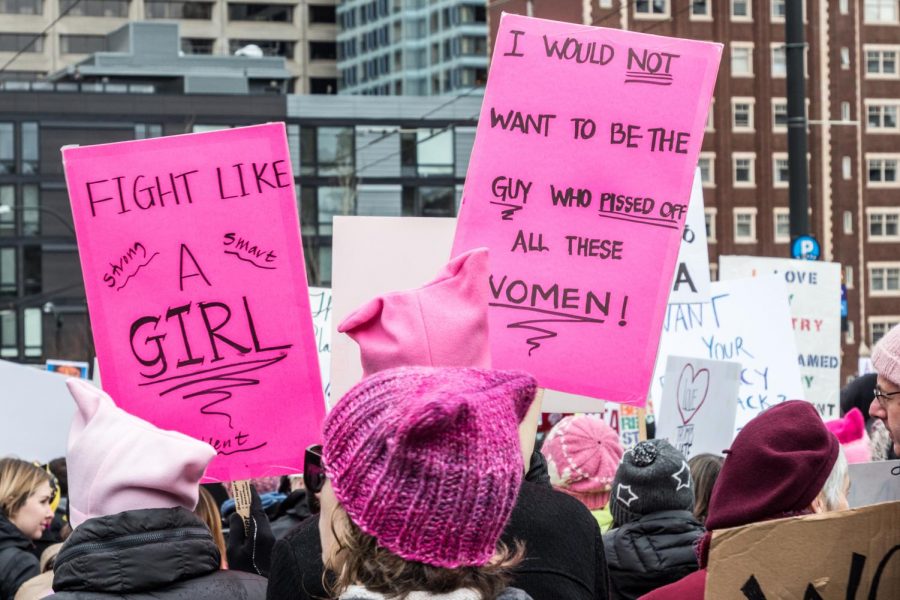What it means to be a modern woman is what it means to be the inheritor of millennia of oppression. Our concepts of gender in this day and age are largely shaped by centuries of history, during which white men maintained the upper hand, and crafted the world as they saw fit.
Womanhood as we know it is descended from these ideas. Standards of beauty for women have always been higher than those for men, and they were consistently based around what men at the time saw as attractive. These standards often disregarded women of color, gender-nonconforming women and anyone who was seen to be outside of the sphere of European “beauty.”
It is not just archaic beauty standards that haunt the women of today. We are dogged by patriarchy at every step, moving through the world on constant defense. Ask any of your female friends if she has been catcalled, sexualized, assaulted or made to feel less than by a man because she was simply not one of his kind. I guarantee she will have experienced at least one of these things.
From every step we take, we are held to a different standard than our male counterparts, whether that be in the workplace, in our education or in the home. From birth, we are expected to be consistently silent and submissive, to step down and let the men take centerstage. I can’t recall how many times I’ve been called bossy or rude for simply filling the same space and taking the same actions my male counterparts did. Women are held to a harsh double standard in today’s world. This narrative, at least in the West, is changing thanks to the women who came before us: women who fought against a society in which their fight seemed doomed to fail.
These women looked out onto a world in which their fundamental rights were suppressed. Fundamental American ideals of life, liberty and the pursuit of happiness were not — and arguably are still not entirely — granted to women until the previous century.
Women only achieved the right to vote in 1919 with the 19th Amendment after over 70 years of Suffragettes fighting tooth and nail. Indigenous women achieved the right to vote state by state, with Utah being the last state to recognize Native American Women’s Suffrage in 1962. Black women couldn’t vote across the U.S. until 1966 when all the barriers which should have been lifted with the creation of the 19th Amendment were finally removed. Black women were also excluded from much of the early women’s suffrage movement because of systemic racism.
American women couldn’t even open their own credit card accounts until 1974 when the Equal Credit Opportunity Act was passed. Up until then they remained hostage in marriage and under the financial control of husbands. Marital rape was fully legal and recognized as a consensual form of sexual contact until 1993 when it was finally criminalized in all 50 states.
Such recent and rapid changes are all thanks to women who defied the conventions of a patriarchal society — women who stood up and spat in the face of the men who told them to stay quiet. We owe everything to them.
“The history of progress is written in the blood of men and women who have dared to espouse an unpopular cause, as, for instance, the black man’s right to his body, or woman’s right to her soul,” wrote Anarchist, feminist, revolutionary and writer Emma Goldman.
The women who came before us have spilled blood; They have ached for the liberation of their souls. American women have come far as a whole. We have fought against every patriarchal device which holds us, have pushed so hard for everything we have gained but there is still so much more work to be done. We as American women cannot say we live in an equitable society until every woman in every corner of the world is free, until every woman truly owns her soul and body. When that day comes, I hope at least a drop of my blood is used to write the history that led to it.


